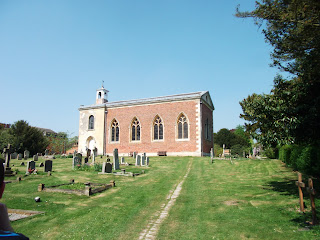Before the present Wimpole Hall was built in around 1640, there was a mooted manor house set in a small 81 hectare (200 acre) deer-park. Situated to the north and south of this were three medieval villages: Bennall End, Thresham End and Green End. Wimpole Hall's grounds were laid out and modified by landscape designers such as George London and Henry Wise (1693–1705). The parkland as it exists today is an overlay of the work of these landscape designers and gardeners, and was completed under the auspices of Elsie and George Bambridge. Elsie, the daughter of Rudvard Kipling, revitalised the house. Thanks to her efforts, this National Trust property is in the state it is in today.
Inside the house:
Bridgeman's formal grand avenue sweeps away from the south front of the house for two and a half miles in contrast with the remainder of the park which was "naturalised" by Capability Brown. The North Park is particularly attractive with its belts of woodland, gentle rolling hills with individual trees and clumps of trees. The central feature of the North Park is the Gothic Tower and the restored lakes in the valley below.
The gardens with the folly in the distance:
Within the grounds there are a chain of lakes (1695–1767), a church (1749), a folly (the false Gothic Tower; 1768), a farm (1792), a walled garden (18th century), and a stable block (1851).
Photo: The small church:












No comments:
Post a Comment